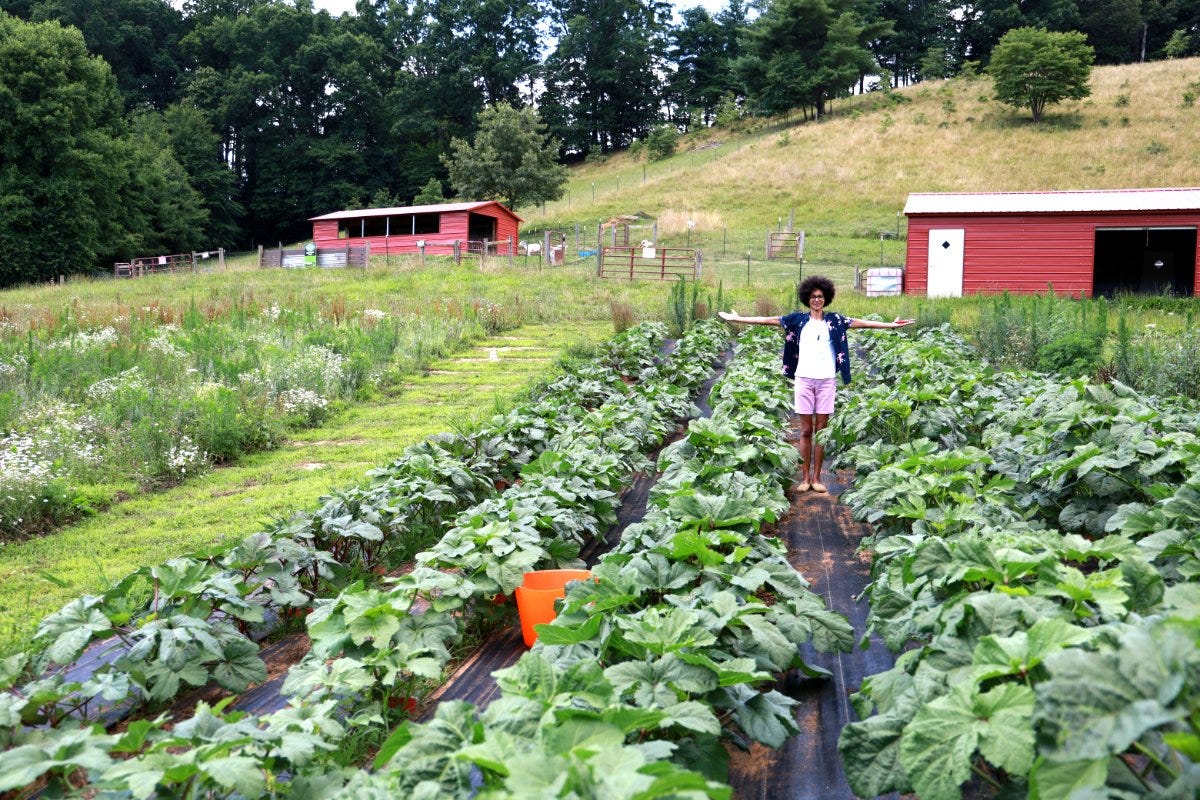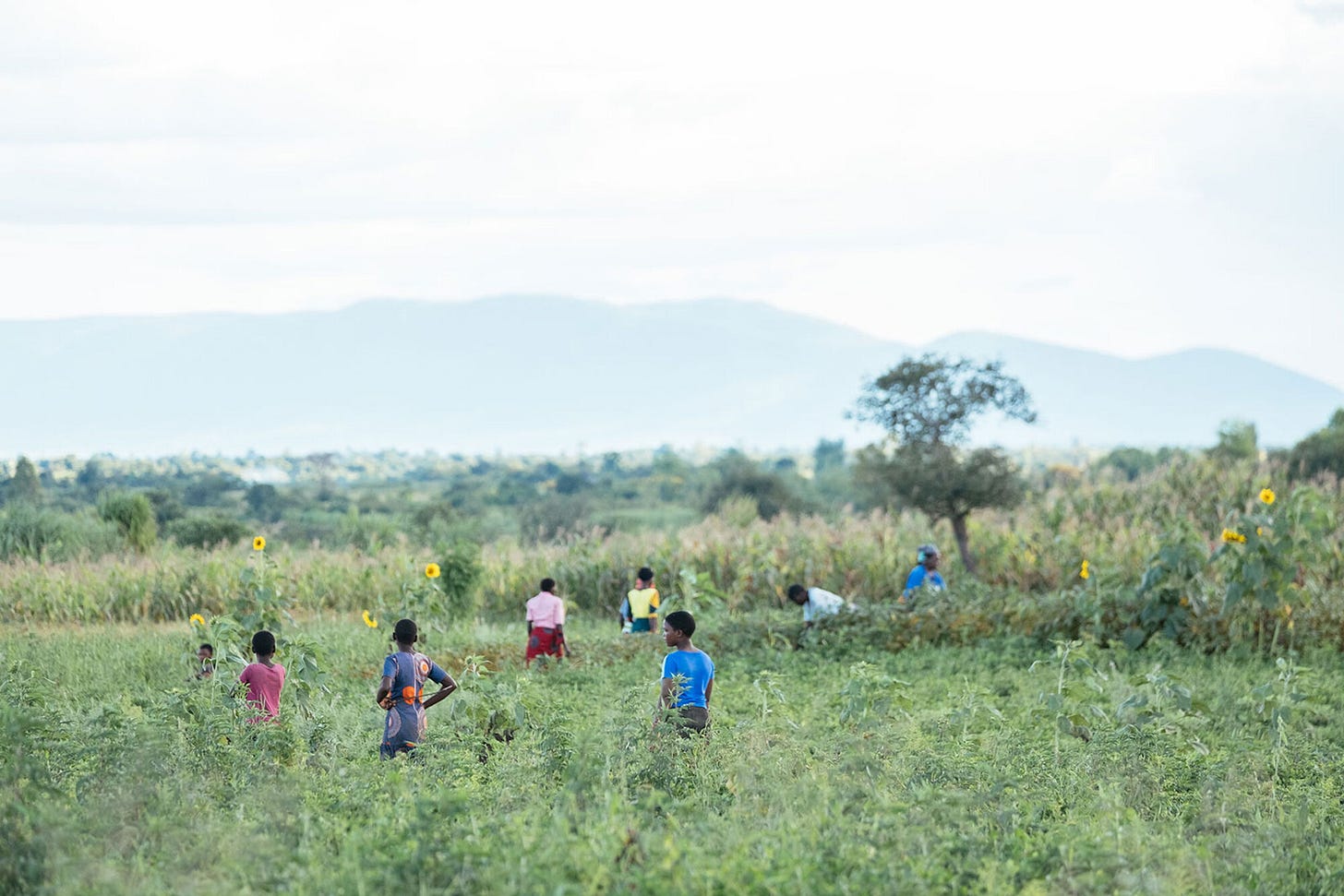No. 50: Reading Round-Up
Climate Hacking / Coperative intelligence / Clean Water Act Protections to Tribal Waters / "The Green King" ? / Rewilding / Bolivian Gold and MORE!

“It is utterly part of our nature to want roots, for a sense of belonging, for some place that is recognized as mine, as yours, as ours.”
—Robert Coles, Uprooted Children (1970)
Happy MAY Regenerative School Community,
OUR CUP IS FULL AND SO IS OUR RETREAT! Thank you so much to everyone for the overwhelming interest in our restorative day retreat offering! If you are interested in grounding in nature and community, but missed the sign ups, email us at admin@regenerativeschool.org to join our waitlist!
We hope everyone had a lovely April, and is enjoying longer (and hopefully easier) days. To celebrate the end of Earth Month, Rē’s director Ashlei Laing went live with Maya Galimdi, Founder of Empower with Nature, to discuss reconnecting with nature and rebelonging to community through periods of transitions. If any of you are going through moves or changes in location, career, relationships, et al. you might resonate with this rich conversation! Tune in to the recording here.
This week we come to your inbox bearing some breaking news, thoughtful essays, and inspiring reads from around the world!
Stay tuned for more Rē School offerings and updates on Friday, May 19th.
Deep gratitude for you all,
The Rē Team
The EPA announced this Wednesday a proposal to finally extend Clean Water Act protections to tribal waters after twenty years. If implemented in September, the plan would set standards for 76,000 unprotected miles of rivers and streams and 1.9 million acres of lakes, reservoirs, and other surface water. Grist’s Lylla Younes reports on this breaking news here.
May is Asian American and Pacific Islander Heritage Month. In “Dreaming of the Hudson: Asian Americans and the All-American Landscape,” Atmos’ Arthur Tam ruminates on masculinity, immigration, identity, and the environment in this thoughtful personal essay.

José Luis Duce Aragüés (left) and Santos Jimenez (right) take stock of a prescribed burn pile. Photo by Brooke Anderson for YES! Magazine. Brooke Anderson’s “From Farmworkers to Land Healers” is a must-read from YES! Magazine sharing how California farmworkers on the front lines of both ecological devastation and climate justice are fighting for training, resources, and job opportunities to restore ecological health and mitigate climate chaos.
“Teaching Cooperative Intelligence, for a Solidarity Economy” by Evan Casper-Futterman for Nonprofit Quarterly explores how developing relationships with educators and young people, hearing about their needs and concerns, and integrating their voices into curriculum development can lead to better outcomes than creating a ready-made curriculum for teachers. Learn more about cooperative intelligence and the idea of a democratic economy here.
In 2010, India launched its National Solar Mission, a sun-powered moon shot with a staggering goal: twenty thousand megawatts of installed capacity by 2022. The New Yorker’s Meera Subramanian reflects on what transpired in “India’s Quest to Build the World’s Largest Solar Farms.” Are the resulting “Mega Solar Parks” a model for the world or a cautionary tale? Click here to read more.

Zoe Adjonyoh, author of Zoe’s Ghana Kitchen, stands in the field during a 2021 visit to see the okra variety trial. (Photo courtesy of Chris Smith for Civil Eats) Daniel Walton’s “A Radical Seed-Breeding Project Could Help Southern Farmers Adapt to Climate Change” for Civil Eats investigates how The Utopian Seed Project is working to adapt more food crops to the changing climate by growing new, resilient varieties of crops in North Carolina. Read about the utopian vision for climate-resilient agriculture here.
IWGIA (International Work Group for Indigenous Affairs) recently shared “Restitution of Indigenous human remains: the case of Argentine museums,” an article penned by María Luz Endere, an Argentinian professor of Legislation and Management of Cultural Resources in Buenos Aires. Endere catalogues the efforts made by museums and science to return the human remains of lost leaders and ancestors to Indigenous communities. Is it enough?
“Rural is not a monolithic thing. Rural is as different from one county, from one place, to the next,” says Kathleen Merrigan, the Executive Director for the Swette Center for Sustainable Food Systems. “Every part of the federal government needs to stand up and do more for rural America if we’re going to change this narrative.” A recent FoodTank op-ed penned by Danielle Nierenberg argues that rural communities have to put People First, Not Profit in order to support communities and food systems alike.
Thomas Graham recently reported on “Bolivian protected areas torn up for gold” for Mongabay News. There are currently 200 cooperatives operating in the Apolobamba protected area. NGOs working with the cooperatives say local miners are keen on making operations more regenerative, but operating costs and lack of government support are hurdles to sustainability. Click here to learn more.

Somini Sengupta and photographer Khadija Farah traveled across Malawi to meet farmers adapting creatively to the climate crisis, via the New York Times. “When it comes to growing food, some of the smallest farmers in the world are becoming some of the most creative farmers in the world,” writes Somini Sengupta for the New York Times in a beautiful profile on the “climate hackers of Malawi.” Sengupta explores how farmers in southeastern Africa are saving themselves from hunger and adapting to drastically changing conditions.
“ ‘Rewilding’ Parts of the Planet Could Have Big Climate Benefits” by Bob Berwyn for Inside Climate News examines how restoring fish, bison, gray wolves and other animals in key regions is possible without risking food supplies, and could remove nearly 500 gigatons of CO2 from the atmosphere by 2100.
In light of King Charles III’s coronation tomorrow, Jeva Lange pens “How Green Is the ‘Green King,’ Really?” for Heatmap. Lange surveys Charles’ mixed green bona fides.
What does love mean to you? to us? bell hooks’ seminal work All About Love meditates on the power of LOVE—and not just the romantic ideal, but self-sympathy and community-care—and how we can transform the way we think about ourselves, families, partners, and society by tending to our understanding of the respect, trust, and responsibility. It’s a beautiful book to sit with over a weekend, a month, and a lifetime. Dare we say, it’s essential reading.
That’s all for this week! We will see you on May 19th with Rē School updates and offerings!
What have you been reading? What have you been listening to? Write to us at admin@regenerativeschool.org and let us know.
Thank you and see you soon!
The Rē Team





